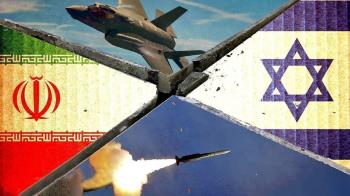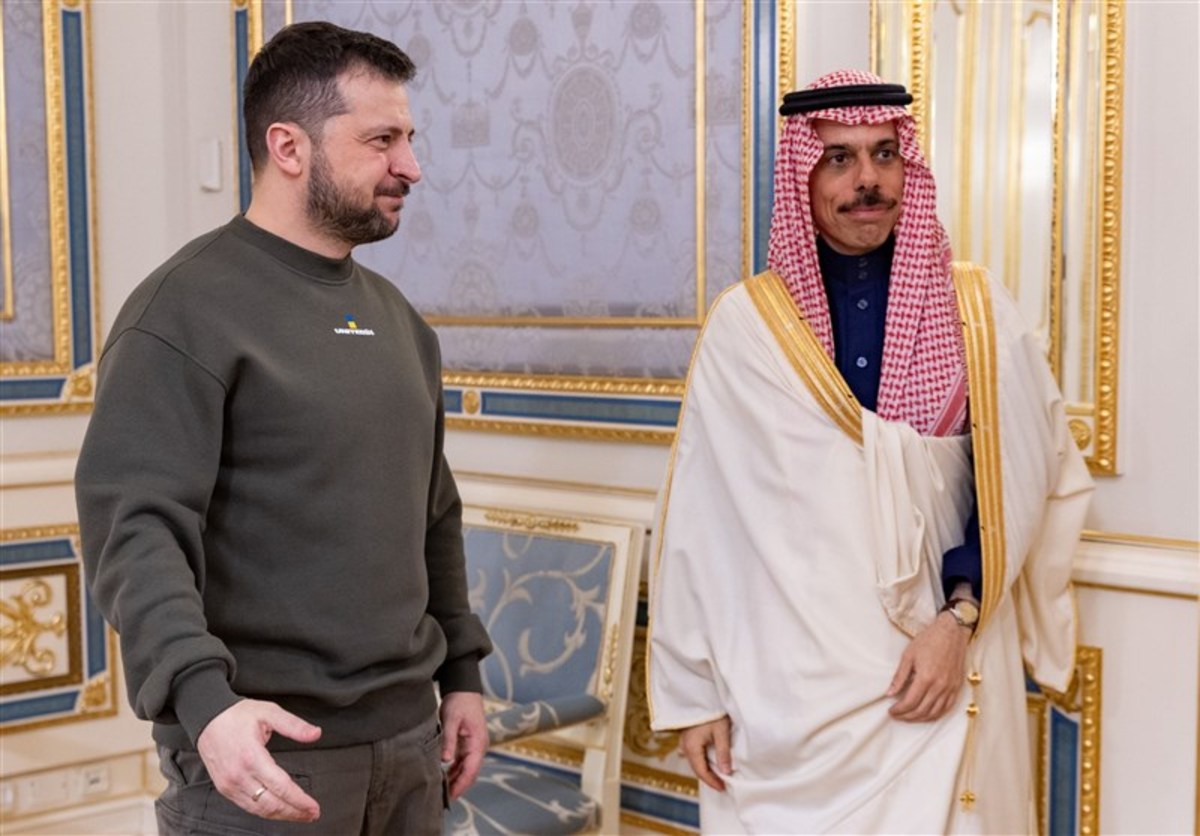Alwaght- With the start of Ukraine war, the Western countries resorted to every trick to isolate and weaken their powerful rival Russia with the help of their allies. To advance this agenda, they focused on their rich Arab monarchies in the Persian Gulf, but to their frustration, these countries have had relatively good relations with Moscow and thus declined to be a piece completing the American puzzle.
One of these countries was Saudi Arabia on whose help the US set its hopes due to an eight-decade strategic alliance. The Americans were optimistic that with the increase in Saudi oil production, they could save their allies from a self-created energy crisis. But the humiliating trip to Saudi Arabia of the US President Joe Biden failed to make a difference in the stated Saudi stances. Rather, the pressure on Riyadh backfired, leading to tensions between the two allies. Now, a recent visit to Ukraine of the Saudi Foreign Minister Faisal bin Farhan on the second anniversary of the war that was accompanied by aid promises raises questions to the observers about whether this visit means means a U-turn in Riyadh’s stances on the West and Ukraine war and a departure from Moscow or the Saudis will remain committed to their positions.
The top Saudi diplomat arrived in Kiev on Monday in a surprise visit and talked to the Ukrainian officials. Bin Farhan is the highest-ranking Saudi official visiting Ukraine in 30 years. Saudi Arabia wants an end to Ukraine war peacefully and is seeking opportunities to settle the crisis in association with all parties, bin Farhan told President Volodymyr Zelensky of Ukraine. Having in mind that bin Farhan’s visit is the first one of an Arab official since the start of the war and because Saudi Arabia plays a major role in the Arab world and energy market, it is worth examining from various aspects.
In addition to the diplomatic face of the Saudi foreign minister’s visit, what attracted more attention than anything else was the type of Riyadh’s support to Kiev. Everyone was waiting to see to what extent the Saudi foreign minister will be generous to help solve some of the problems of Ukraine in this critical situation, but the outcome was only a $400 million aid package. The agreement includes a joint cooperation program to provide humanitarian aid to Ukraine worth $100 million. It also includes the financing of oil derivatives worth $300 million as a grant from Riyadh to Ukraine through the Saudi Arabia’s National Development Fund.
This visit comes as the Westerners desperately need help from their allies to Ukraine, and in recent weeks, American officials toured various countries to bring on board more supporters.
Ukraine place in Washington-Riyadh strained relations
The Saudi foreign minister’s visit to Ukraine in the second year of war comes as at the beginning of war, Western countries expected Riyadh to side with them against Russia due to its position in the world energy market, but this did not happen. Due to the energy crisis that followed the imposition of anti-Russian sanctions, the Westerners tried hard to convince the Saudi rulers to cooperate in this field, but failed. Even Biden’s visit to Saudi Arabia, which was made with the aim of pushing for increase in the kingdom’s oil output in order to lower energy prices in the global markets, was not successful, and the Saudis adhered to the agreements they had with Russia within the framework of OPEC Plus, infuriating the West.
Over the past year, Saudi Arabia stood by Russians in the energy policy making in defiance of the administration of Biden who since his inauguration declined calls for meetings with the Saudi Crown Prince Mohammed bin Salman for human rights abuses and specifically the assassination of the outspoken Saudi critic and author Jamal Khashoggi. Riyadh’s position on Ukraine war strained ties with Washington, to an extent that the US said it would review its relations with the Arab monarchy as a punishment. Congress lawmakers also demanded Biden administration to stop arms exports to Saudi Arabia, but because of the consequences of this move, they withdrew a motion put forward by some congressmen. They decided that if they excessively pressure Saudi Arabia, it would lean towards the US rivals Russia and China, and this is a threat to the interests of the West in the Persian Gulf.
With the American show of tolerance with Saudi Arabia, the Saudis pressed ahead with the new political route they choose and bolstered ties with China, defying American warnings. During Chinese President Xi Jinping’s visit to Riyadh in December, to whom the Saudis presented a glamorous and warm reception just contrary to cold welcome to Biden, 30 contracts were inked in various sectors, sending the Americans worried more than ever. With these policies of Saudi Arabia, Westerners came to believe that they can no longer count on the cooperation of this country towards their global policies. Some Western analysts, considering the strained ties of Riyadh and Washington, announced the end of the honeymoon of relations and the strategic alliance between the two sides.
Seeking middle way amid war
With the Western view to Saudi Arabia having grown negative over the past year, Riyadh leaders are trying to clear up the misunderstandings with the West. That is why the Saudi FM flew to Ukraine after 30 years to tell the West that Riyadh is not an ally to Moscow. The Saudis are actually seeking to walk a fine line between Russia and Ukraine. As they coordinated with Russia in OPEC Plus and refused to comply to the anti-Russian sanctions, they are trying to somehow boost ties with Ukraine. To show in practice they are not allied to the Russians, they granted Kiev a $400 million aid package, an aid planned to be spent in the form of humanitarian aids and oil derivatives and not in cash, and possibly would not make a difference to the Ukrainians since the West and Kiev want Riyadh renege on its agreements with Moscow and help them by increasing its oil output to enable their spending less on energy and more on arms to Ukraine.
Since there are no clear prospects for peace and both sides show no signs they are ready to walk back, the Saudis seem to take a middle way on this crisis that somehow determines the economic and military future of the world.
Saudi Arabia ostensibly wants an end to Ukraine war and resumption of dialogue for a peaceful solution, but in reality it wants its continuation since it pushed up the oil prices and made huge cash flowing to the kingdom’s coffers. Moreover, the more tensions between the two sides, the more interests Saudi Arabia can make from them, a practice the Saudis followed over the past year. Therefore, the US and its allies should not count on Saudi Arabia in their confrontation of Russia, as the Saudis have proven, at least since Ukraine war, that they no longer offer the Americans a free ride.



























